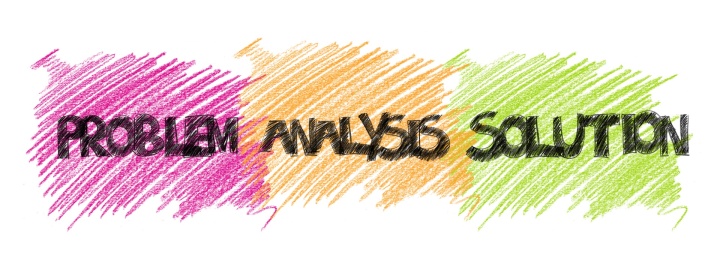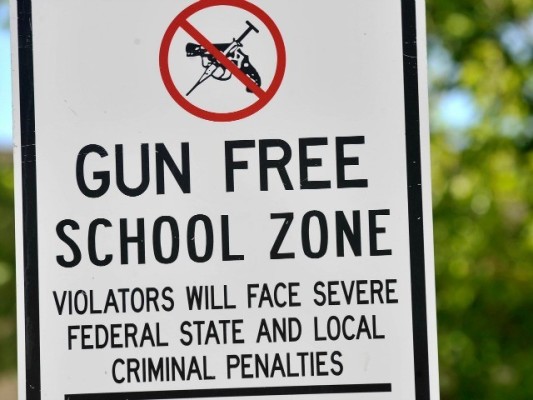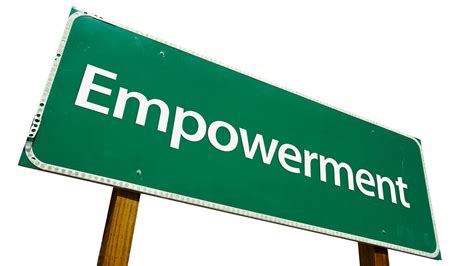
Judging by my university’s Instagram last weekend, and the preparations at work for the impending arrival of interns (I’m expected to mentor officially this summer! That’s both exciting and concerning.) it appears graduation just happened. With that in mind, I want to talk to the new engineering grads for a minute about what I’ve learned in this field over the past few years. There’s a lot I wish I’d known going in, and maybe I can impart some of that. I’m new enough in the field that I remember my thesis defense like it was yesterday, but experienced enough that I’ve passed the PE exam, and some other people have passed it since I did. Career-wise, I’ve held three jobs, my current one being a promotion within the same organization as the last, and my salary has gone up 48% in three years due to strategic moves and promotions. As of two days ago, I’m officially in charge of a few people, which scares the shit out of me at this point, but I’ll get used to it. Anyway, that’s who I am, and I’ve got something to say to recent grads. Maybe some of this applies to non-engineers, too. I don’t know. Take what you will from it.
I had a shitty job when I was an EIT, and it’s ok if that’s how you start out, too.
Being that I was, at that time, a single parent, I couldn’t sit around and wait for my dream job to show up, so I had to take what I could get in the highly competitive city I needed to move to. I was an out of state applicant from a school most people hadn’t heard of, and while I brought with me an impressive paper count, glowing references, and an EIT certificate, I was still competing with the graduates of a huge program at a university that had been named, that very year, the top public research university in the nation, and the graduates of another well-known and nearby university that takes pride in graduating more engineers than any other university in the country. The deck was heavily stacked against me, and I knew it. I took what was offered, a contract position with a well-respected government agency, for a project that looked impressive on a CV. I knew going in that it was crap. It involved a part of my field that I wasn’t particularly interested in (and that was reaffirmed for me every day that I was there), the pay was horrible, and not having paid time off or health insurance was extremely unsustainable in the long run.
Yet, that job was exactly what I needed at the time. It put me in touch with hundreds of other engineers, government and private sector alike, and it did look impressive. I also learned a lot there. That’s an important thing to remember. Even the shittiest job in the world will teach you lessons that you are better off for learning, so focus on that part, and be positive. Know it’s not forever, be actively planning your next move, and take what there is to be gained from it.
Your employment needs may change quickly.
At any given stage in your career, you’re going to need something different out of your workplace. At first, I needed a paycheck sufficient to cover rent, utilities, daycare, food, and the payment on a used Mazda3. After that, I needed a place that knew how to develop engineers from EIT’s to PE’s. Now, I need an environment that grants me the freedom to research and analyze in line with my own interests.
I can’t stress enough that early in your career, you need a boss who knows what to do with EIT’s. You need support at that stage, and one of the biggest lessons going from my first job to my second was just how much I couldn’t do this alone. When my state decoupled the PE exam from the experience requirement, I decided to take the exam ASAP. I told my boss at my first job this, and he was happy about that, but also had no idea how to support me in it. Nobody could tell me where to get the manuals I needed. There was no allowance for prep courses. There was no time given at work to study. Nobody knew what to do with an EIT in that place, and I’m glad I didn’t take the exam while working there.
My second job was the complete opposite. It was a PE factory. There was an established procedure. Our director would decide which two EIT’s would take the exam each time it was given, and we would be sent to a prep course during working hours, two days a week for three months. We were given all our manuals and an inclusive reference book, along with access to a database of practice problems and solutions. We were allowed several hours a week to study at work during the month prior to the exam, our workload was lightened, and we were given the week of the exam off work, free of charge, to study and rest. Not surprisingly, everyone from there passes. Nobody can remember a time when someone failed. I took the PE exam a year and a half after arriving at that job (I had to wait for it to be my turn), and passed with a respectable score on the first try. I do not think I would have passed on the first try if I had still been at my first job when I took the exam. Your first four years in this field are crucial. Spend at least half of it somewhere that knows how to develop an EIT into a PE. I am a drastically better engineer for coming up in a place like that for the majority of my EIT years.
Six months after I passed the PE exam, I was promoted and moved to a different division, one that doesn’t develop their EIT’s as intensively, but allows the intellectual freedom I need to be the kind of engineer I really am. There’s far less oversight, and it’s not nearly as structured or regimented, which means EIT’s are kind of on their own for seeking out development opportunities that exist within our organization. I no longer have a mentor. I am no longer sent on job rotations. I’m not encouraged to take field trips anymore. Yet, I’m allowed to do my own in-house research. I can recommend changes to policy, software, and procedure, and people listen and potentially implement it. This is where Anastasia PE can thrive. It isn’t that my second job was a bad place to work. It was actually a fantastic place to work. This place meets more of my needs at this stage than they did, though, and that’s why I was able to promote in this direction.
Be honest with yourself about what your needs are. If you’re a new EIT, you need a mentor. You need a development program. You need a peer group, and people just above where you are to tell you what the next stage looks like. I can’t recommend those things highly enough. It costs $350 to take the PE exam. You only want to do it once. This gives you much better odds.
Keep a journal of your projects.
This was told to me by my mentor on my first day at my second job. Since you’re going to have to write about all these projects when you apply for your PE license, you need to remember them very well. Keep a record of what they were, who else worked on them, and unique things about them. This will make the process of writing your Supplemental Experience Record (SER) far easier when the time comes. The time will come much quicker than you think it will.
You will quite likely make more money if you move around strategically.
I’m a government employee, and our salaries are public record. That means I know exactly how much my bosses and coworkers are being paid. As it turns out, I’m out-earning all my peers, and have nearly caught up to my non-management coworkers who have been with our organization for a decade longer than I have. It’s not because I’m a better engineer than they are. In fact, some of them are drastically better engineers than I am. The difference is, I’ve entered salary negotiations every 1-2 years. I switched jobs twice as an EIT, once being a promotion, and then the standard 10% PE raise resulted in two raises in a single year, causing an 18% pay increase and completely changing my salary trajectory. Those I am quickly closing in on have been in the same job since they graduated from college. They are excellent at their jobs, so I know why they stayed, but it has pretty clearly cost them.
If there is one thing the past year has taught me, it is that moving around is good for the bank account. Do a good job wherever you are, and always have your ear to the ground for news of new opportunities that suit you. If you make it clear to the people you apply with that you’re quite happy where you are, but you’re really passionate about the work that they do and would transfer over if the terms are right, they will make the terms right. You’ll have glowing references wherever you go, and decent raises every couple years. You’ll probably also do better work.
Yet, it’s important to be strategic. Don’t just take any old job that offers you a good paycheck. Make sure it puts you in line for where you actually want to be. Ask people who have been in the field for a long time what their experience looks like, especially those in jobs you yourself would like to have someday. Our profession is big on mentoring. People will advise you if you ask.
Be honest about what kind of engineer you are.
I remember my first trip to the state DOT. It was for a research symposium, and I was presenting. We were hoping for a million dollars more in funding, so a lot hinged on our success at this. We drove to the Capital, and rode the elevator up to the top floor of the state DOT building, and I just remember being impressed the whole time. The engineers we met there were brilliant. They asked tough questions, talked about exciting design projects that were in the works, and tossed around the most innovative ideas I’d ever heard as if they were not a big deal at all. These were state level engineers, and I wanted to be part of their world. For a long time, that’s what I thought working at the state DOT was. It was the only side of it I had ever seen.
I’m glad I saw the other side before I began applying for jobs. One day, a professor of mine invited a couple of local area level state DOT engineers to speak with our class about ongoing projects and their role in them. They talked about managing traffic control contractors, and pulling permits. They told us about heavy equipment issues, and how many times in the course of their career they had to pave the same road. They talked about the times they were called in because a culvert had washed out, and showed us pictures of ditch failures during storms. I came away from that seminar knowing that I wanted no part of that type of work.
Our field is huge. Sure, everybody pictures civil engineers as the people sitting at a computer with AutoCAD, drawing plans for a bridge. That’s a fraction of who we are. In fact, I don’t even like AutoCAD, and I love this field. Know who you are and determine what you want out of it. If you’re someone who thinks heavy equipment is cool, and you majored in engineering because your parents told you that you were too smart to just go work construction all your life, then you need to be in the field. You need to manage construction. If you’re one who joined civil engineering because the job market is better than it is in physics, but you’re really into that highly analytical side of things (this is basically me), then you need to find a position that will allow you to do extremely detailed analysis and preferably publish your findings. Maybe you’re one who thought architecture looked cool, but the closest your local university offered was civil engineering. You need to go design structures. You probably like AutoCAD, too. Freak. (I’m kidding.) My point is that there’s something for everybody in this field, and you need to figure out what aspect of it actually suits you so that you can move forward in that direction without getting stuck doing something you don’t even like. Just because you CAN do it doesn’t mean you SHOULD.
Lead when it is indicated.
I remember the first time someone said I had leadership skills. I was a TA, and had to take charge of something that I wasn’t really comfortable taking charge of, but I did it anyway because nobody else was stepping up, and it went really well. My professor commended me on my leadership skills. Later on, at my first job, I had to coordinate meetings sometimes between multiple government agencies, contractors, and engineering firms with conflicting interests. I always came into it with a goal of understanding all their needs and finding a solution that suited everyone. My boss received emails raving about my customer service and, you guessed it, leadership skills. In my previous job, I was asked to lead projects, and even serve on the board of a group for engineers under 40. Then I got hired in a position that requires me to serve as a team leader. I am not a person who craves power. It actually makes me super nervous when people look to me for the solution to things, but one of the most important things an engineer can do is get right with the idea that most of us will be expected to lead in some capacity throughout our career. Learn how to be the type of leader that people want to follow.
Understand our role in society.
This is the fun part. We have a really cool job to do. When you tell people you’re an engineer, they will often be impressed by that. They’ll think you’re really smart, and ask you a lot of questions. Engage with the community. We’re here to serve them. We have a duty to understand what they need and want from us. Yes, people are going to complain to you about their least favorite intersection, ask you why there’s so much traffic, and tag you in whatever pop-sci video the internet is obsessed with. Be patient, explain that no, we really don’t need solar roadways because asphalt is actually a really environmentally friendly material that works great for what we need it to do. Empathize with their concerns about traffic, and let them know the way to request an intersection analysis to see if that traffic light that’s driving them nuts is really working the way it should be. Get them involved. These are taxpayers. We need their support, and ultimately, we work for them.
Sometimes you’ll be asked to speak to groups of students. This is an opportunity you should cherish above all others. Some of these kids might become civil engineers because you showed them a side of the profession they had never seen before. Maybe they thought engineering was boring until you put a human face on it and told them about something cool you got to do. You might be the only engineer some of them have ever met. If you are a woman or a person of color, maybe you are the only engineer they have ever met who represents that. You may be the only person who has ever told any given child what it takes to become an engineer. They’re going to have a lot of questions. Answer all of them, even the silly ones, and be honored that that you’re the person who gets to do that. Sometimes the kids ask better questions than adults.
Be generous with your time. Judge the science fair. Do the volunteering event. Sponsor the youth basketball team. Advise the elementary school STEM club. Show your community that you’re more than the person responsible for the orange barricades they dodge on their way to work. People will trust your judgment more if they know you’re in this right alongside them.
Finally…
Four years as a working engineer go by fast, way faster than college did. One day, you’re a new grad, not sure what this will hold for you, and then one day, you wake up and you’re a PE with interns and EIT’s looking up at you like you’re the real deal they aspire to be. Make the most of it. Learn from everybody. Above all, enjoy it. It’s a real trip to get to do this. People are going to pay millions of dollars to build or research stuff that came from your head. Isn’t that wild?
Welcome to the world’s second oldest profession. We’re glad you’re here.








